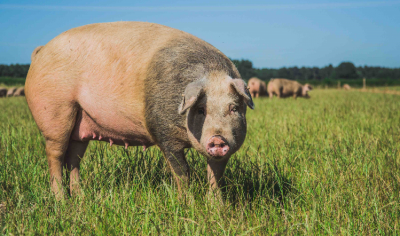FSA strengthens support for meat industry during pandemic

In an open letter to the meat industry, FSA chief operating officer Colin Sullivan praised the sector’s cooperation with the body and its “we’re all in this together” attitude in response to the COVID-19 pandemic.
He warned that the organisation would likely face reduced staffing levels for many weeks and months to come and urged businesses to work closely with it in order to maintain safe food production and protect animal welfare.
Sullivan’s letter followed warnings from the British Meat Processors Association that the meat sector was at serious risk from a shortage of labour due to the coronavirus outbreak.
Measures to safeguard industry
Responding to the growing concerns of the industry, Sullivan identified a range of measures and flexibilities, some of which could be implemented immediately, while others required legislation before being considered.
“Our priority must be to provide as full a service as possible, which enables sufficient production of safe food,” said Sullivan. “There will be some difficult decisions to be made which makes it vitally important that businesses keep FSA/E&J [official veterinarian] colleagues informed of changing demands and an FBO’s [food organisation’s] ability to operate.
“We have been made aware of some situations in different parts of the country, which are potentially inhibiting our ability to deliver official controls. These are the exception rather than the rule, but I wanted to bring these to your attention.”
Sullivan warned that resources at the FSA were finite and that it might not be able to cover all requests to extend production, particularly those made at short notice.
Trainee inspectors
He also called for operators to be more open to visits by trainee meat inspectors to help progress as many of them through their training as possible.
Businesses adversely impacted by reduced or cancelled orders were advised to contact their local FSA management teams to discuss methods of support. It hoped to avoid additional charges through amending agreed working hours and resource levels, allowing the FSA to redeploy resource to plants that needed it most.
“I would like to reassure you that we are doing everything we can to deliver official controls in as many premises as possible and would urge you to work with us to enable us to achieve this,” Sullivan added.
“We would encourage you to speak to your local manager about localised issues and keep these lines of communication open. In this way we can build on our local relationships and ensure we work through these testing times together.”

















